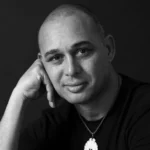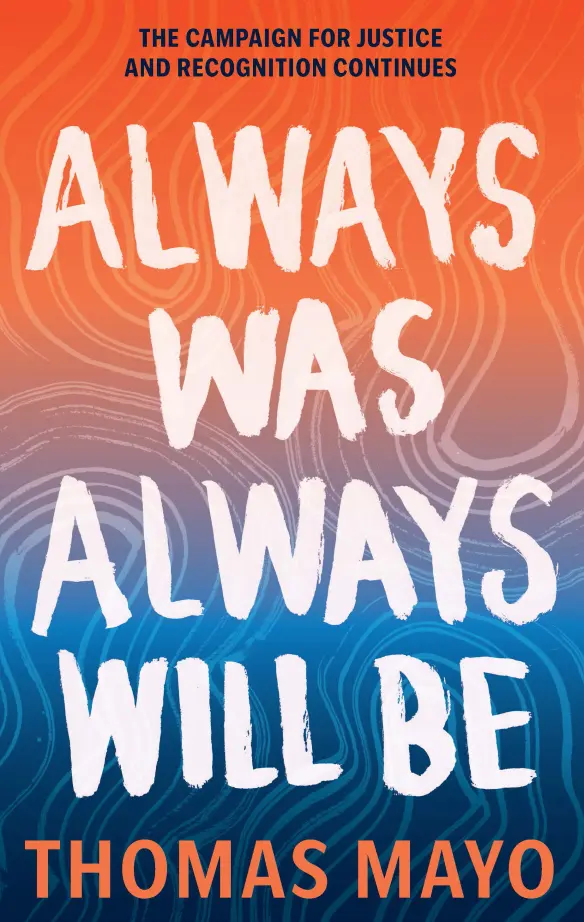One year on from the Voice referendum, Thomas Mayo asks: What about the Uluṟu Statement from the Heart now?

In January 2024, I started writing this book and later that month I travelled interstate to a conference to deliver my first speech for the year. In the briefing beforehand, I was asked if I would recite the Uluṟu Statement at the close of the talk. I explained why I wouldn’t, how I felt too rejected, too hurt, too empty, but then I changed my mind.
The Uluṟu Statement from the Heart is no less true because of the referendum result. The need for a Voice is no less logical, no less important. It remains the best way to design policies and laws, giving a Voice to the people who they affect most.
It also remains the most powerful public document that anyone in this nation has ever produced. It is the only national public statement endorsed by a consensus of Indigenous peoples – by tracking the ‘Yes’ votes across the country, it is irrefutable that the Uluṟu Statement is supported by a majority of Indigenous Australians. Many people still feel the words are more moving than anything they have read or heard in their lives, and I feel this way myself.
At the conference in January, I recited the Uluṟu Statement with a slight change to say that a Voice remains important, though sure, it wouldn’t be added to the Australian Constitution any time soon. The words were heavy in my throat but saying them out loud to this gathering felt like an act of defiance – a statement calling for peace, not war, as the No campaign claimed in their unrelenting fight against it.
The room stood as one, as Aboriginal and Torres Strait Islander people did in the heart of the nation on 26 May 2017 when Professor Megan Davis read it aloud for the first time. People cried, as we had done at the Uluṟu Convention, and as so many Australians did when we shared those words in meetings and rallies in 2023. A superficial ‘No’ cannot override such heartfelt hope.
I say to all who will listen, read the Uluṟu Statement from the Heart. Share it. Teach your children about it. Put it up on your wall. Commit to walk with us, for Voice, Treaty, Truth, as it invites you to do. It continues to be a call to action from Aboriginal and Torres Strait Islander people to this nation.
This is an extract from Always Was, Always Will Be: The Campaign for Justice and Recognition Continues by Thomas Mayo.
Published by Hardie Grant, this book is essential reading for those who want to know ‘what’s next?’ after the October 2023 Voice to Parliament referendum, from one of the most respected Indigenous voices in the country.
 Thomas Mayo is a Torres Strait Islander man born on Larrakia country in Darwin. As an Islander growing up on the mainland, he learned to hunt traditional foods with his father and to island dance from the Darwin community of Torres Strait Islanders. In high school, Thomas’s English teacher suggested he should become a writer. He didn’t think then that he would become one of the first ever Torres Strait Islander authors to have a book published for the general trade. Instead, he became a wharf labourer from the age of seventeen, until he became a union official for the Maritime Union of Australia in his early thirties. Quietly spoken in character, Thomas found his voice on the wharves. As he gained the skills of negotiation and organising in the union movement, he applied those skills to advancing the rights of Indigenous peoples, becoming a signatory to the Uluru Statement from the Heart and a tireless campaigner. Following the Uluru Convention, Thomas was entrusted to carry the sacred canvas of the Uluru Statement from the Heart. He then embarked on an eighteen-month journey around the country to garner support for a constitutionally enshrined First Nations voice, and a Makarrata Commission for truth-telling and agreement-making or treaties. Thomas is the author of Finding The Heart of The Nation, Dear Son and the children’s books – Finding Our Heart and Freedom Day.
Thomas Mayo is a Torres Strait Islander man born on Larrakia country in Darwin. As an Islander growing up on the mainland, he learned to hunt traditional foods with his father and to island dance from the Darwin community of Torres Strait Islanders. In high school, Thomas’s English teacher suggested he should become a writer. He didn’t think then that he would become one of the first ever Torres Strait Islander authors to have a book published for the general trade. Instead, he became a wharf labourer from the age of seventeen, until he became a union official for the Maritime Union of Australia in his early thirties. Quietly spoken in character, Thomas found his voice on the wharves. As he gained the skills of negotiation and organising in the union movement, he applied those skills to advancing the rights of Indigenous peoples, becoming a signatory to the Uluru Statement from the Heart and a tireless campaigner. Following the Uluru Convention, Thomas was entrusted to carry the sacred canvas of the Uluru Statement from the Heart. He then embarked on an eighteen-month journey around the country to garner support for a constitutionally enshrined First Nations voice, and a Makarrata Commission for truth-telling and agreement-making or treaties. Thomas is the author of Finding The Heart of The Nation, Dear Son and the children’s books – Finding Our Heart and Freedom Day.
